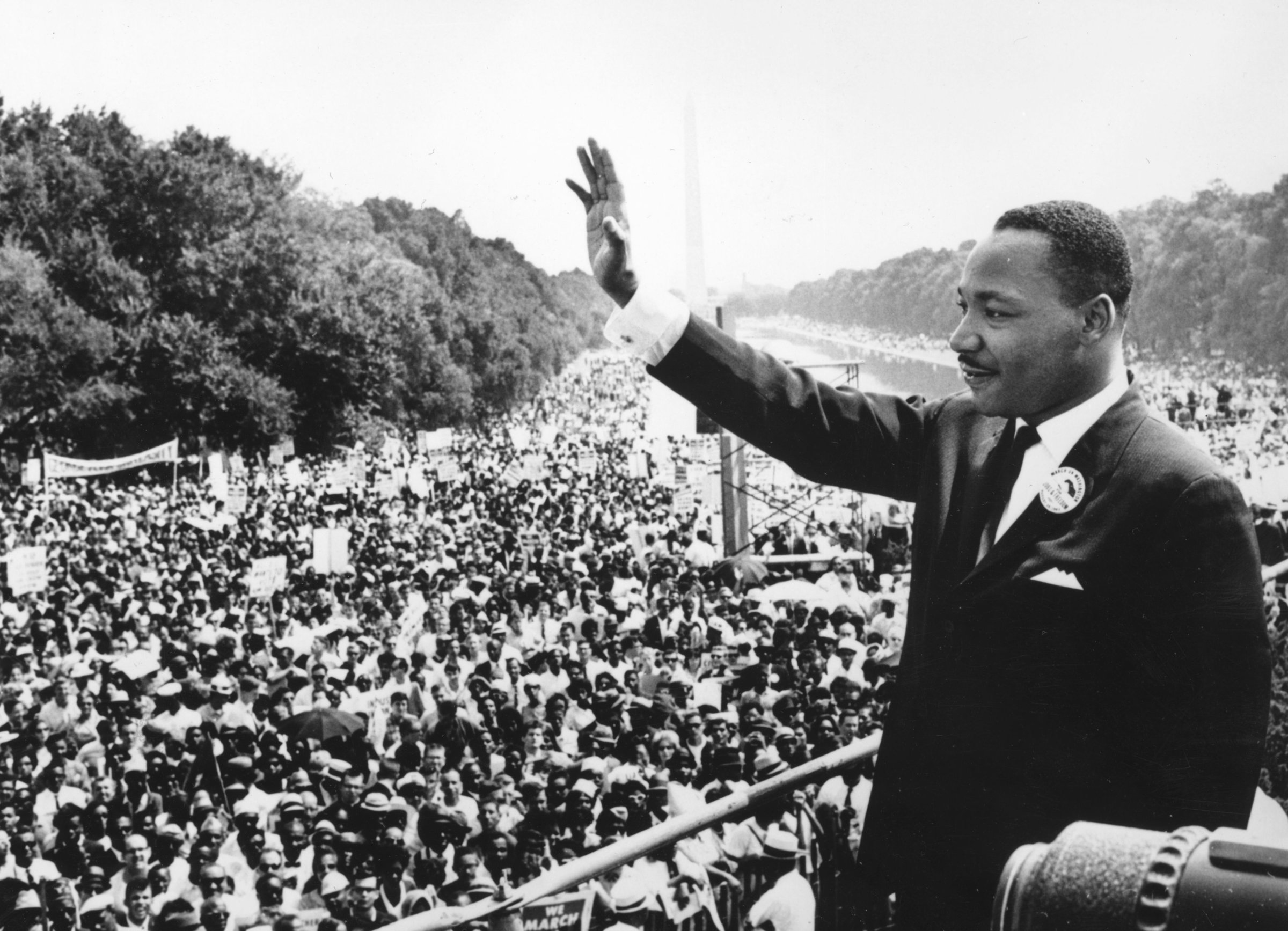
Nihad Awad is National Executive Director of the Council on American-Islamic Relations
As we honor the legacy of the Rev. Dr. Martin Luther King, Jr., we must also remember that his message of unity and equality for all people is no less relevant or urgent now than it was during the Civil Rights Movement of the 1950s and 1960s.
We still witness widespread marginalization and disenfranchisement of African Americans and other minority groups, economically and in the educational and criminal justice systems. We still live in a nation in which African-American children are orders of magnitude more likely to live in poverty, to go hungry, to be incarcerated, or be killed.
We still allocate too many of our national resources to monitoring and punishing minorities, and too few to empowering them to be fully vested members of society. We have come far in the last 50 years, but today we must remember that we still have so far to go.
More than 50 years ago, in his immortal speech at the steps of the Lincoln Memorial in front of 250,000 people from all backgrounds, races, and faiths, Dr. King declared that: “Now is the time to make justice a reality for all of God’s children.”
Pointedly, he did not call for justice only for African Americans, but for all people as an inalienable right. As such, today we remember that the struggles of all who are oppressed are inextricably bound together, and that, as Dr. King insisted: “We cannot walk alone.” Injustice is an indiscriminate opponent.
In the last year, it has become vividly clear that the force of this injustice has also fallen on the American Muslim community. Islamophobia and hatred toward those of the Muslim faith has increased to an unprecedented degree.
Since the Paris terror attacks, the San Bernardino shootings and the inflammatory anti-Muslim rhetoric of public figures like Donald Trump and Ben Carson, there has been an unprecedented spike in Islamophobic incidents nationwide.
In 2015, there were more than 70 incidents targeting American mosques and religious institutions. That is the most such incidents of damage, destruction, vandalism, and intimidation than in any other year since CAIR started tracking anti-mosque cases in 2009.
Just as we share the pain of discrimination and unequal treatment, we also stand with our African-American brothers and sisters—many of whom are Muslim—in demanding equality and justice for all within our country.
We demand that our nation live up to its own profession of values, that the United States becomes its best self by becoming more free, more open, more inclusive, and more accepting of racial and religious diversity.
We declare without reservation that we will continue to engage in the struggle for true freedom that Dr. King articulated, one which is enshrined within the Declaration of Independence declaring that all people are created equal.
Today, as we look back into our history, we see that the struggle for justice is not new, but neither is justice unattainable. And as we look with one glance back, we look with another ahead, envisioning a better future for all Americans.
Today, I invite all Americans to help make this dream a reality.
More Must-Reads from TIME
- Donald Trump Is TIME's 2024 Person of the Year
- Why We Chose Trump as Person of the Year
- Is Intermittent Fasting Good or Bad for You?
- The 100 Must-Read Books of 2024
- The 20 Best Christmas TV Episodes
- Column: If Optimism Feels Ridiculous Now, Try Hope
- The Future of Climate Action Is Trade Policy
- Merle Bombardieri Is Helping People Make the Baby Decision
Contact us at letters@time.com